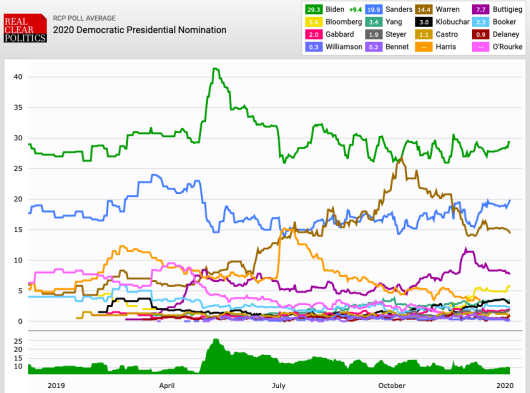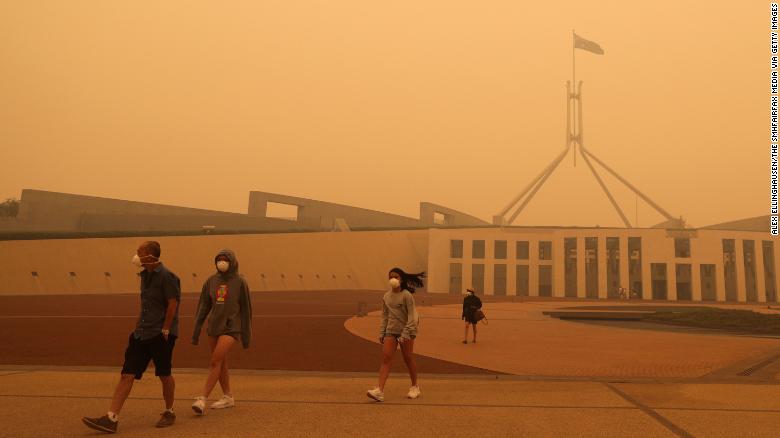No person employed by or acting on behalf of the United States Government shall engage in, or conspire to engage in, assassination.
-- Executive Order 12333 (1981)
Of course you realize, this means war.
This week's featured post is "Is It War Yet?"
This week everybody was talking about conflict with Iran
Many aspects of the situation are covered in the featured post.
Here are a couple of things I didn't get around to mentioning: A key feature of both Iraq wars is that we had allies, like Bush's famous "coalition of the willing". But we're pretty much without allies here. There are three main reasons for this:
- Since he took office, Trump has been alienating our allies in ways ranging from insults to tariffs.
- He consulted none of them before assassinating Soleimani. Any country that gets behind Trump now is signing up for whatever future action pops into his head.
- He's made it pretty clear that he intends to commit war crimes, like bombing cultural sites. In the past, Trump has advocated torture, killing family members of terrorists, and a variety of other war crimes. He has pardoned members of the US military who were accused or even convicted of war crimes. Foreign leaders contemplating allying with Trump have to consider the possibility that they're making a date with the International Criminal Court in The Hague.
On the war crimes issue, Chris Hayes points out that it shouldn't surprise anybody.
The President of the United States ran on a pro-war-crimes platform, explicitly. He likes war crimes and thinks they are good. He's been very clear about this.
and 2020
Ever since the Electoral College put Trump in office, the number 2020 has taken on mythic significance. It's the time of hope, of dread, of comeuppance, of the opportunity to escape from this national nightmare, and so on.
Now, suddenly, it's a year. It's a number we write on our checks. Seeing "2020" staring back at us from our calendars is like hearing the conductor announce that the train has stopped in Narnia or Mordor.
Who thought we'd actually get here?
So now that we've arrived in this portentous year, it's time to take stock of the presidential race. The Iowa caucuses are less than a month away now, and things happen quickly after that. By the time California votes on March 3, some candidate might have the Democratic nomination in the bag.
At the moment that candidate looks like Joe Biden, though there's still a lot of uncertainty. Individual polls have been volatile, but the most striking thing about the long-term trends has been how steady they are. On January 1, 2019, the RealClearPolitics polling average for Democratic candidates nationwide had Biden at 27.0%, Sanders at 17.0, and Beto O'Rourke at around 9%.
As of yesterday, the RCP averages were Biden 29.4%, Sanders 19.4%, Warren 14.8%, Buttigieg 7.9%, Bloomberg 5.8% and nobody else over 5%.
The main development of 2019 was that a lot of minor candidates got eliminated: Beto is long gone, and so are Kamala Harris and Julian Castro. In fact, the only candidate of color left in the race is Cory Booker, who the RCP has at 2.3%. A bunch of interchangeable white male moderates entered the race hoping to emerge as Biden faltered, but none of them got anywhere. Some have dropped out and some are still in the race, but I have trouble remembering which is which. (I watched Senator Bennet get interviewed by Chris Hayes a week or so ago, and my wife asked "Who is that guy?" Currently, Bloomberg and Klobuchar are the moderate-establishment hopes if something happens to Biden.) Warren and Buttigieg have gained, though Warren's boom may be over; she briefly led the pack in October before falling back to third.
The most notable developments in the Democratic race during 2019 were the ones that could have happened, but didn't: Some candidate of color could have broken out, challenging Biden's hold over the black vote the way that Obama challenged Clinton in 2008. Or Biden might have taken off and become the inevitable nominee by now.
As was true a year ago, the Democratic electorate is divided between moderates and progressives. They represent not just two governing philosophies, but two approaches to beating Trump: Moderates hope to win the way that Democrats took the House in 2018, by flipping educated suburbanites who used to vote Republican. Progressives hope to win by exciting young voters and poor voters whose non-appearance at the polls was the main difference between Obama 2012 and Clinton 2016.
That argument is ongoing, and no candidate has managed to bridge the gap the way Obama did in 2008. So the most serious question in the race right now is whether (since there appears to be no compromise candidate) Democrats can stay united after one side wins and the other loses. My opinion: Either a moderate or a progressive can beat Trump if the party unites behind him or her. But neither can if the losing side demonizes the nominee to the point that a significant number of their voters stay home in November. Whether you see yourself as moderate or progressive, I urge you to keep that in mind whenever you're tempted to pass on dubious information about candidates in the other faction.
On the other side of the electorate, not much has happened to Trump's approval rating. On January 1, 2019, 52.2% of the country disapproved of Trump's job performance. The most recent number is 52.3%. (It's too soon to tell whether the growing conflict with Iran will affect it one way or the other.)
and Australia's wildfires
It's hard to grasp the extent of the fires Australia has been having since September, but Interesting Engineering provides some comparisons. The area affected by smoke, if moved to the US, would stretch from San Diego to Minneapolis. The burnt area is roughly the size of Belgium, or just a little smaller than Ireland.
Canberra's 340 rating on the air quality index is double that of famously polluted Beijing. The Parliament House looks like this:
Australia is in many ways a microcosm of the rest of the world. It is suffering from climate change, but refusing to do anything about it. Volunteer firefighter Jennifer Mills writes:
Sadly, the fires are also an illustration of the principle that while a nation might share the same facts, its people can still refuse to share a reality. [Prime Minister Scott] Morrison likes to note that Australia produces just 1.3 percent of the world’s greenhouse-gas emissions. But Australia is also the world’s biggest exporter of coal, and we have regularly sided with other big, fossil fuel-dependent nations to stymie global climate negotiations. At December’s climate talks in Madrid, we came under fire for attempting to fiddle with the books to hide increased emissions. Australia is not just dragging its feet on climate change; it is actively making things worse. Internationally, there is a sense that we are getting what we deserve.
and you also might be interested in ...
Three were killed and two more injured in an attack on an American military base in Kenya. The attack was attributed to al Shabab, a Islamist group associated with al Qaeda. It's a Sunni group and Iran is Shia, so there's probably no connection to the Soleimani assassination.
Trump may have blocked congressional subpoenas, but a number of impeachment-related emails have been revealed through the Freedom of Information Act. Just Security obtained a number of emails that show Pentagon officials worrying about the legality of withholding military aid that Congress had authorized for Ukraine. OMB's Mike Duffy cited "Clear direction from POTUS" as the reason to hold up the aid.
Duffy is one of the witnesses Democrats would like to call in Trump's impeachment trial, but Mitch McConnell doesn't want any witnesses to testify.
The Washington Post collects reactions from people who watched the movie Cats while on drugs. (The reactions of people not on drugs are almost universally negative.)
It was unclear, on balance, whether getting high made “Cats” better, or much, much worse. Certainly, it seemed to raise the emotional stakes.
When Vladimir Putin faced the two-term limit on Russia's presidency, he backed a stooge who would name him prime minister. Trumpists seem to be picturing something similar.
In a poll of 2024 possibilities, 40% of Republicans picked Mike Pence, but Donald Jr. and Ivanka were second and fourth, between them garnering 45%. Nikki Haley was third at 26%.
and let's close with a drink that is out of this world
The Yoda-rita.



No comments:
Post a Comment